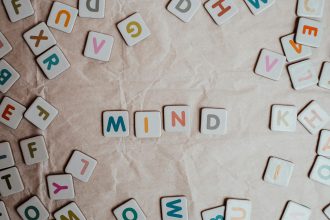Most people who experience a concussion recover within a few weeks. But for some, symptoms linger for months—or even longer—disrupting school, work, relationships, and everyday life. This condition is known as post-concussion syndrome (PCS), a complication that highlights how even “mild” brain injuries can have serious, lasting effects.
Understanding PCS is crucial for survivors and families. With the right care, symptoms can be managed, and recovery is possible, but early recognition and support are key.
What Is Post-Concussion Syndrome?
Post-concussion syndrome is a set of symptoms that continue after the expected recovery period from a concussion, usually lasting beyond two weeks and sometimes stretching into months or years.
The condition does not necessarily correlate with how severe the initial concussion seemed. Even minor head injuries can result in prolonged symptoms, while more severe concussions may resolve quickly. Researchers believe PCS arises from a combination of physical, chemical, and psychological changes in the brain.
Common Symptoms
PCS affects both the body and the mind. Survivors often report a mix of physical, cognitive, and emotional symptoms that may come and go in intensity. These can include:
- Headaches and migraines that persist or worsen with stress.
- Dizziness or balance problems, making it hard to walk or drive.
- Sensitivity to light and sound, leading to discomfort in bright or noisy environments.
- Cognitive issues such as memory lapses, trouble concentrating, or mental “fog.”
- Sleep disturbances, including insomnia or excessive fatigue.
- Emotional changes, such as irritability, anxiety, or depression.
These symptoms often overlap, creating cycles—for example, poor sleep may worsen headaches, which in turn increase fatigue and irritability.
Why Some People Develop PCS
Not everyone who sustains a concussion develops PCS. Researchers believe risk factors include:
- Previous concussions or head injuries.
- Pre-existing mental health conditions such as anxiety or depression.
- High levels of stress at the time of injury.
- Being older in age, as recovery may take longer.
- Lack of early rest or rushing back to normal activities too quickly.
These factors don’t guarantee PCS will develop, but they may increase vulnerability.
Diagnosis
There is no single test for PCS. Doctors diagnose it based on symptoms that persist beyond the usual concussion recovery timeline. Imaging scans such as CT or MRI often appear normal, which can frustrate survivors who feel their symptoms are not “visible.”
A thorough evaluation usually includes a neurologist or concussion specialist, along with neuropsychological testing to assess memory, attention, and processing speed.
Treatment and Management
There is no one-size-fits-all treatment for PCS. Instead, care is tailored to each survivor’s symptoms. Common strategies include:
- Medication to manage headaches, sleep problems, or mood changes.
- Vestibular therapy for dizziness and balance issues.
- Cognitive rehabilitation for attention, memory, and problem-solving deficits.
- Psychological support, including cognitive-behavioral therapy, to manage stress and emotional changes.
- Gradual return-to-activity programs, helping survivors reintroduce school, work, or sports safely.
Many survivors benefit from a multidisciplinary approach, with doctors, therapists, and psychologists working together.
The Role of Rest and Lifestyle Adjustments
Early rest after a concussion is important, but long-term PCS often requires balancing rest with activity. Too much inactivity can lead to deconditioning and worsen mood, while overexertion can intensify symptoms. Structured schedules, regular sleep, hydration, and light exercise (when tolerated) all support recovery.
Families play a role as well, helping reduce stress, encouraging pacing, and advocating for accommodations at work or school.
Outlook and Long-Term Recovery
Most people with PCS gradually recover, though the timeline varies. Some improve within a few months, while others experience symptoms for a year or longer. With proper management, symptoms often lessen in intensity and become more manageable over time.
Even when recovery feels slow, it’s important to remember that PCS is real and treatable. Support, patience, and persistence are key to navigating this stage of healing.
Conclusion
Post-concussion syndrome is one of the most common complications of brain injury, reminding us that even mild concussions can have lasting effects. While symptoms can be disruptive, a combination of medical care, therapy, and lifestyle adjustments offers survivors a path to recovery.
With the right support, most people eventually return to their normal lives—often with a deeper understanding of the importance of rest, balance, and ongoing care.




